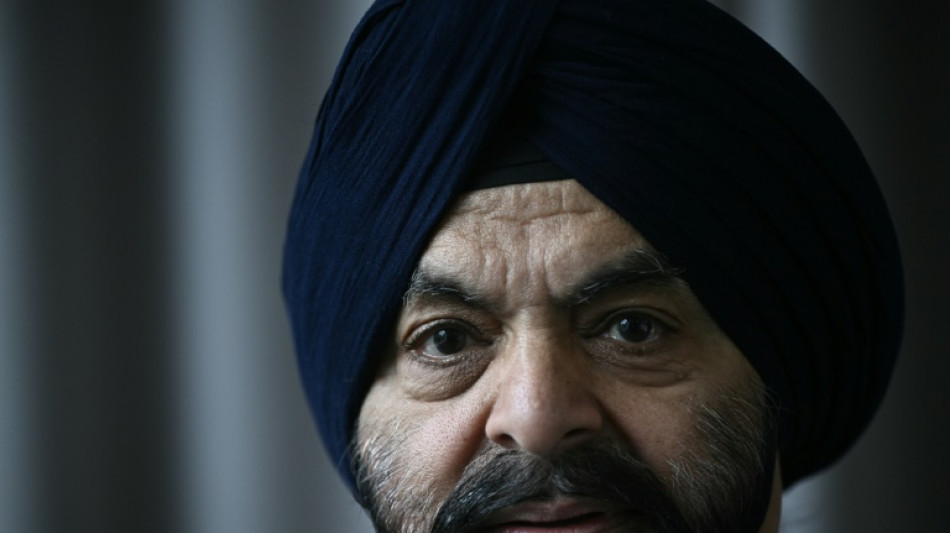
-
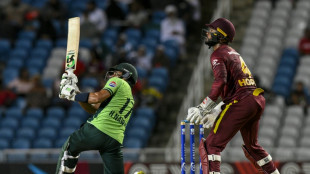 Nawaz sparks Pakistan to five-wicket ODI win over West Indies
Nawaz sparks Pakistan to five-wicket ODI win over West Indies
-
Lions' Norris hospitalized after scary injury, NFL pre-season game suspended

-
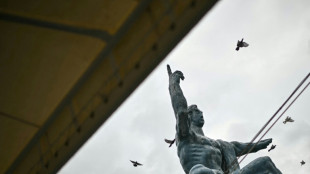 Restored Nagasaki bell rings in 80 years since A-bomb
Restored Nagasaki bell rings in 80 years since A-bomb
-
Putin-Trump summit: what we know so far
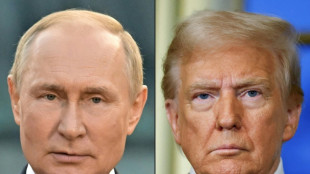
-
 Australia settle on Marsh and Head as T20 openers
Australia settle on Marsh and Head as T20 openers
-
New York declares total war on prolific rat population

-
 Patriots unveil statue honoring iconic quarterback Tom Brady
Patriots unveil statue honoring iconic quarterback Tom Brady
-
Slot's new-look Liverpool under the spotlight in Community Shield

-
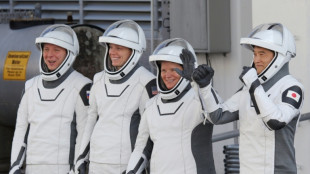 Five astronauts leave space station for trip back to Earth
Five astronauts leave space station for trip back to Earth
-
Trump and Putin to meet in Alaska next Friday
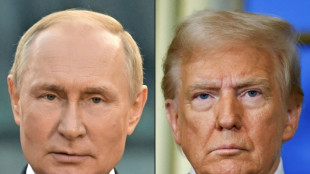
-
 NBA to open season with blockbuster showdowns: report
NBA to open season with blockbuster showdowns: report
-
Brazil's Lula vetoes parts of environmental 'devastation bill'
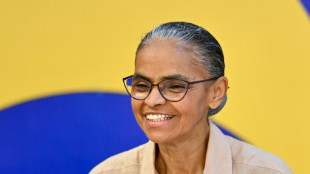
-
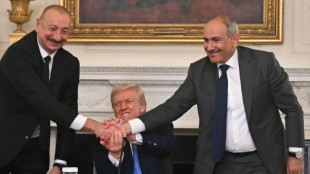 Trump says Armenia, Azerbaijan commit to end fighting 'forever'
Trump says Armenia, Azerbaijan commit to end fighting 'forever'
-
Toronto champion Shelton to start Cincy against Argentine outsider
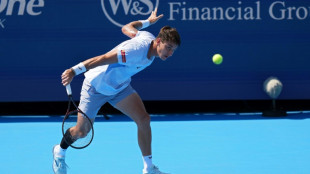
-
 US astronaut Jim Lovell, commander of Apollo 13, dead at 97
US astronaut Jim Lovell, commander of Apollo 13, dead at 97
-
Trump says to meet Putin next Friday in Alaska
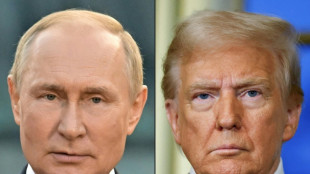
-
 Fire extinguished, historic mosque-cathedral in southern Spain 'saved'
Fire extinguished, historic mosque-cathedral in southern Spain 'saved'
-
Trump demands $1bn from University of California over UCLA protests
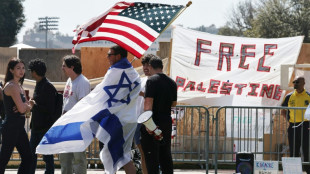
-
 Fire contained, historic mosque-cathedral in southern Spain 'saved'
Fire contained, historic mosque-cathedral in southern Spain 'saved'
-
US health chief based vaccine cuts on misinformation, researchers say
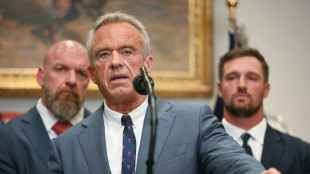
-
 US astronaut Jim Lovell, commander of imperiled Apollo 13, dead at 97
US astronaut Jim Lovell, commander of imperiled Apollo 13, dead at 97
-
Trump says will meet with Putin 'very shortly'
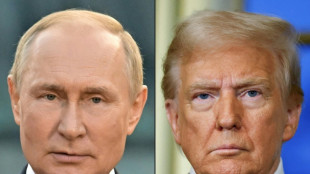
-
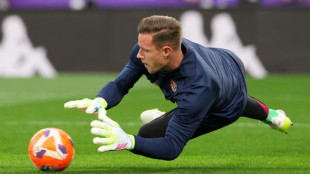 Barcelona reinstate Ter Stegen as captain
Barcelona reinstate Ter Stegen as captain
-
Fleetwood leads St. Jude in search of first US PGA Tour title

-
 Gold futures hit record on US tariff shock; mixed day for stocks
Gold futures hit record on US tariff shock; mixed day for stocks
-
Trump says Armenia, Azerbaijan committed to end fighting 'forever'
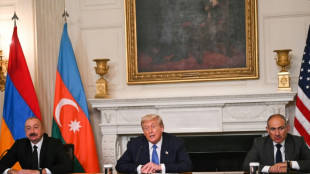
-
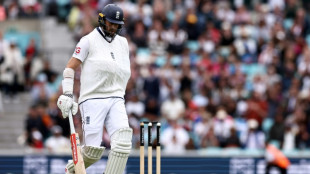 England's injured Woakes still has Ashes hopes
England's injured Woakes still has Ashes hopes
-
US astronaut Jim Lovell, Apollo 13 commander, dead at 97

-
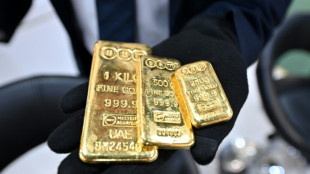 Swiss gold refining sector stung by US tariffs
Swiss gold refining sector stung by US tariffs
-
New Instagram location sharing feature sparks privacy fears
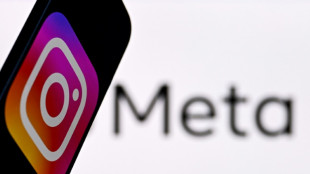
-
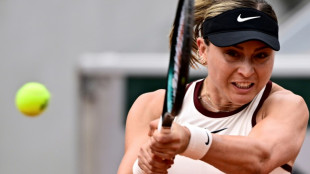 Spain's Badosa withdraws from US Open
Spain's Badosa withdraws from US Open
-
Mexico seeks compensation from Adidas in cultural appropriation row

-
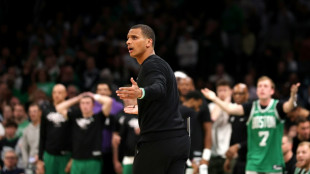 NBA Celtics sign Mazzulla to coaching contract extension
NBA Celtics sign Mazzulla to coaching contract extension
-
Swiss gold refining sector hits US tariff mine
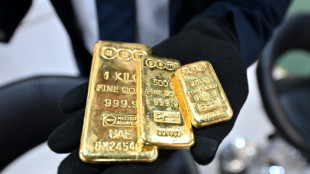
-
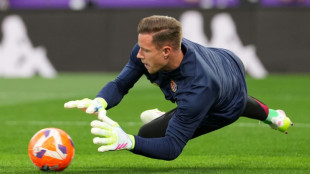 Ter Stegen responds after Barcelona strips him of captaincy
Ter Stegen responds after Barcelona strips him of captaincy
-
Chelsea's Broja joins Burnley on five-year deal

-
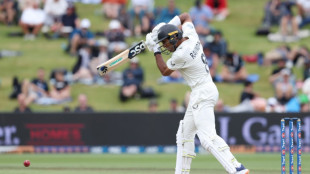 Three centurions as 'ruthless' New Zealand pile on runs against Zimbabwe
Three centurions as 'ruthless' New Zealand pile on runs against Zimbabwe
-
Three die in Greece as gales stoke fires, disrupt ferries
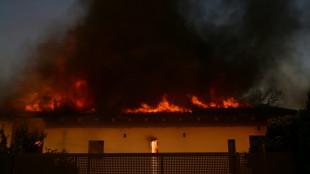
-
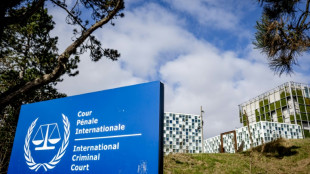 ICC unseals Libya war crimes warrant for militia officer
ICC unseals Libya war crimes warrant for militia officer
-
Montreal protagonists Mboko, Osaka out of Cincinnati Open
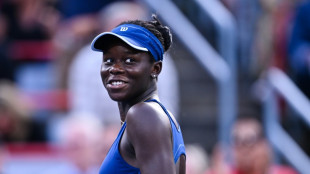
-
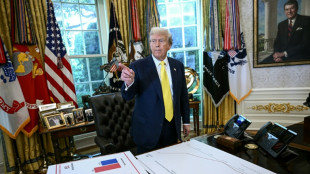 Trump says court halt of tariffs would cause 'Great Depression'
Trump says court halt of tariffs would cause 'Great Depression'
-
Glasner says demotion to Conference League would punish 'innocent' Palace
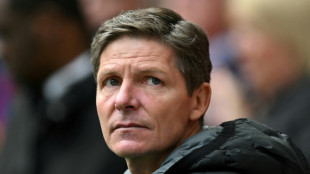
-
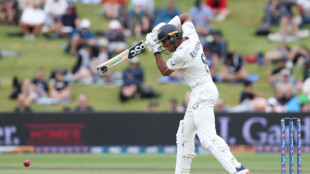 New Zealand build big total in 2nd Test against Zimbabwe
New Zealand build big total in 2nd Test against Zimbabwe
-
Trump hosts foes Armenia, Azerbaijan in his latest peace initiative
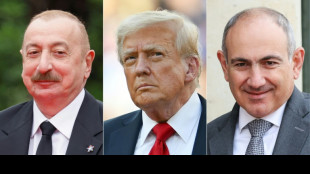
-
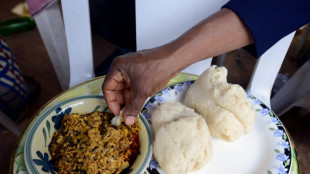 Nigerian scientists await return of Egusi seeds sent to space
Nigerian scientists await return of Egusi seeds sent to space
-
Pioneer spirit drives Swiss solar-powered plane altitude attempt
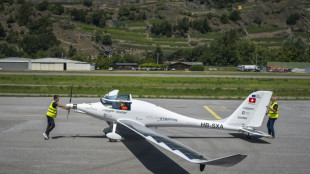
-
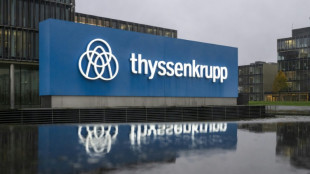 Thyssenkrupp to spin off marine division amid defence boom
Thyssenkrupp to spin off marine division amid defence boom
-
Vance and Lammy talk Gaza, fish as US VP starts UK holiday
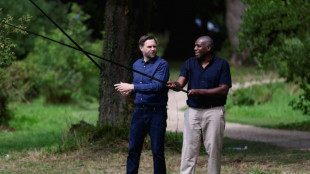
-
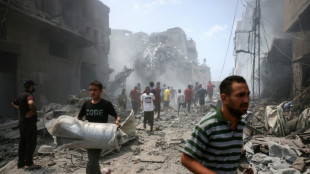 Israel plans to 'take control' of Gaza City, sparking wave of criticism
Israel plans to 'take control' of Gaza City, sparking wave of criticism
-
Putin taps key allies ahead of Trump summit, sanctions deadline
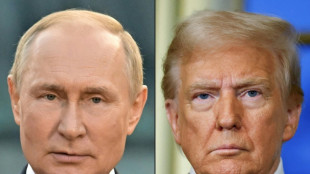
| RBGPF | 1.7% | 73.08 | $ | |
| CMSD | 0.25% | 23.58 | $ | |
| JRI | 0.19% | 13.435 | $ | |
| BCC | -1.34% | 82.09 | $ | |
| SCS | -0.76% | 15.88 | $ | |
| NGG | -1.51% | 71.01 | $ | |
| BCE | 2.34% | 24.35 | $ | |
| RIO | 1.76% | 61.86 | $ | |
| SCU | 0% | 12.72 | $ | |
| RELX | -2.2% | 48 | $ | |
| GSK | 0.58% | 37.8 | $ | |
| RYCEF | -0.14% | 14.42 | $ | |
| VOD | 0.88% | 11.36 | $ | |
| BTI | 0.96% | 57.24 | $ | |
| CMSC | 0.39% | 23.05 | $ | |
| AZN | -0.69% | 73.55 | $ | |
| BP | -0.15% | 34.14 | $ |

Developing countries should fast-track US trade deals: World Bank president
Developing countries should strike swift trade deals with the United States at the "earliest possible" opportunity, the president of the World Bank told AFP Friday, after a busy week with global financial leaders in Washington.
Ajay Banga was interviewed by AFP at the World Bank and International Monetary Fund's Spring Meetings, which have been held this year under a cloud of uncertainty about President Donald Trump's stop-start tariff rollout.
The Bank has been advising developing countries to get a deal done quickly with the United States, and to then focus attention on cutting trade barriers and boosting regional flows of goods, Banga said.
"You need to negotiate trade systems with the US at the earliest possible," he said. "If you delay, it hurts everyone."
Trump's tariffs have roiled financial markets, sent volatility surging and spooked investors and consumers.
Since returning to office in January, the US leader has imposed a "baseline" 10 percent tariff on most countries, with much higher duties on China, and 25 percent sector-specific levies on areas including steel, aluminum, and automobiles not manufactured in the United States.
He also introduced much higher tariffs on dozens of countries -- which have since been temporarily paused -- accusing them of having an unfair trade balance with the United States.
- Bessent 'not wrong' on China -
Banga also addressed the criticism levelled by new US Treasury Secretary Scott Bessent at the Bank earlier this week.
Bessent criticized China's "absurd" developing country status and called on Banga and IMF Managing Director Kristalina Georgieva to "earn the confidence of the administration."
"I don't think he's wrong," Banga said of Bessent's comments on China.
"A country that is the size of China and the capability of China, at some point, should no longer be taking money from IBRD," he said, referring the International Bank for Reconstruction and Development -- an arm of the World Bank that lends largely to middle-income countries.
China, he said, still borrowed around $750 million from the IBRD last year, while paying in billions of dollars to the Fund in repayments and donations.
"My view is, I've brought it down to 750 (million), and I'm trying to figure out a way to deal with China to bring it down further," he said. "I want to get it done. And that's what I'm talking to the Chinese about."
Banga said the Trump administration's broader criticisms of the World Bank were not unusual, citing newly-elected governments over the past year in countries including France, Japan, and Korea.
"I keep telling people this is a perfectly constructive request, to say, tell me and show me that you guys are the kind of people that advance the interests of my taxpayer, of my country," he said.
"I take it in that spirit," he said. "There's nothing wrong with it."
- Energy at 'lowest possible cost' -
Since taking the helm of the Washington-based development lender in 2023, Banga has pushed to streamline its operations and encourage private sector participation, while focusing on job creation and electricity connectivity.
Among the Bank's current priorities is a push with the African Development Bank to connect 300 million people in sub-Saharan Africa to electricity by 2030 -- a process that will require a vast amount of new energy to be brought online.
"You should try and get (energy) in the best, accessible way and the lowest possible cost," Banga said, suggesting that in addition to renewable power, nuclear and gas could help provide a base load -- two energy sources the World Bank is currently hesitant to finance.
The Bank's executive board is set to discuss its energy strategy in June, Banga said, adding that funding for both nuclear and gas would likely be on the agenda.
Banga said the Bank is also pushing to encourage great private sector job creation in developing countries -- beyond simply outsourcing jobs from advanced economies.
"Because then you end up with challenges in (advanced economies), and you can see that people are speaking about them with their votes," he added.
R.Shaban--SF-PST
